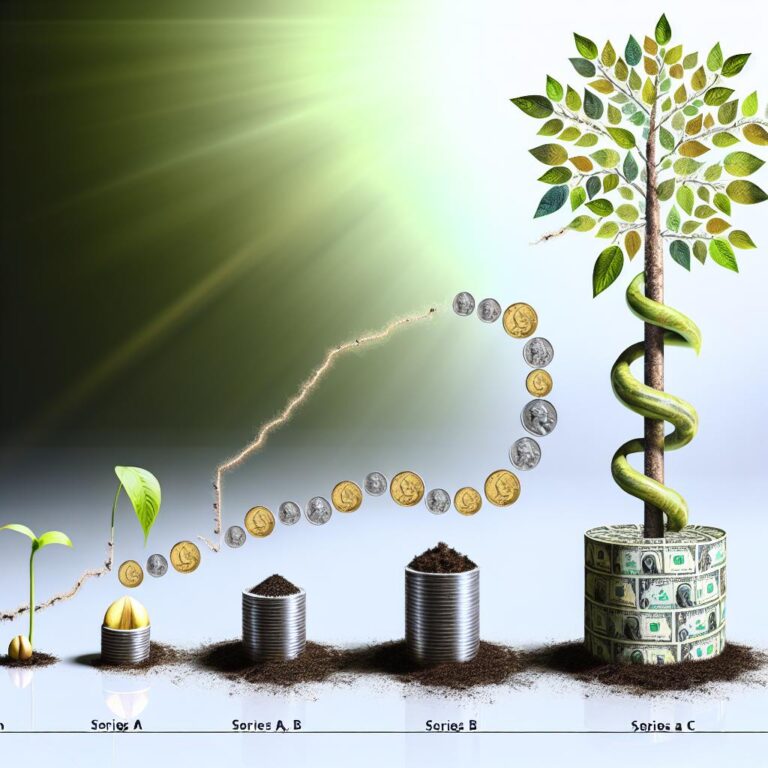Are disruptive venture technologies redefining industries?
- Disruptive technologies transform industries by creating new markets or reshaping existing ones.
- Unlike traditional advancements, they initially seem less appealing but eventually outperform existing solutions.
- Examples include digital platforms replacing physical stores, AI in healthcare, and electric vehicles in the automotive sector.
- Key industries impacted include healthcare, finance, and automotive, with innovations improving efficiency and services.
- Venture capital fuels these innovations, supporting startups with substantial funding for development.
- Challenges include adapting to new tech and training staff, while opportunities arise in improved services and cost efficiencies.
- Real-world examples like Xaira Therapeutics and Wiz demonstrate significant transformations in sectors like healthcare and cybersecurity.
- These innovations drive future trends and redefine global industries.
Are disruptive venture technologies reshaping industries? As an avid space and tech fan, I'm thrilled to dive into this exciting topic. Disruptive technologies have the power to redefine how companies operate, from healthcare to finance. We'll explore how these tech advancements change the rules and open new doors for growth. Join me as we uncover their impact and understand why venture capital can't resist fueling this innovative wave.
How Are Disruptive Technologies Defined?

Disruptive technologies change how things work. They do not just improve; they transform industries. Industries become different because these technologies bring new ways of doing tasks. They challenge old methods and replace them with more efficient ones.
When we think about disruptive technologies, we consider their impact on business and industry change. Examples include changes in business models, like digital platforms instead of physical stores. New technologies reshape what industries do and how they do it.
A question I often hear is, "What are disruptive technologies?" To answer precisely, they are innovations that create new markets or transform existing ones. They may start small but can have a huge impact over time. For example, when digital cameras first came out, they seemed minor. But they eventually took over the market from film cameras.
"How do these technologies differ from traditional advancements?" you may ask. Traditional innovations improve what already exists. Disruptive technologies, though, create something new. They seem less appealing at first. Yet, over time, they outperform traditional options.
To appreciate these technologies, consider how they evolve industries. They bring unexpected solutions that can seem risky. Initially, they might not seem important in an industry. But soon, they can become the standard everyone must follow to stay competitive.
In the end, disruptive technologies redefine entire sectors. They show how innovation can overcome the conventional, much like the switch from horse-drawn carriages to cars. For more on this transformative shift, read about how disruptive technologies are reshaping industries.
What Is the Impact of Disruptive Technologies on Key Industries?
Disruptive technologies are changing industries with new ideas and tools. In healthcare, these technologies save lives through better treatments and faster diagnoses. For example, AI, like that used by Xaira Therapeutics, helps find new drugs. This website shows many examples of how these technologies work.
In finance, technology is making transactions smooth and fast. Digital platforms allow people to invest and manage money online without a bank. This change provides more access and ease for users.
The automotive industry is also seeing big changes. Smart technology like self-driving cars and electric vehicles reduces pollution and increases safety. Companies use this new tech to build cars that think and drive by themselves.
These industries show how important technologies shift old ways to better options. They bring more efficiency, cost savings, and improved service. This wave of change creates both new challenges and chances for growth in every traditional sector.
Venture capital helps by funding these changes, making sure new ideas get out into the world. With strong funding, like the $1 billion for Xaira, industries can keep up with change and improve. The spread of these technologies is transforming how we live and do business. This new wave of innovation and investment brings us closer to a tech-driven future.
What Challenges and Opportunities Do Disruptive Technologies Present?

Disruptive technologies can be tricky for businesses. One big challenge is adapting to the changes they bring. Many companies find it hard to switch from old ways to new tech. They worry about costs and whether the tech will fit their needs. Another challenge is training staff to use new systems. This takes time and can slow down daily work.
Opportunities, however, can be exciting. For instance, disruptive technologies in healthcare are making patient care much better. Businesses can use new tech to offer better products and services. This makes customers happy and can lead to more sales. New tech can also help companies save money. It can make processes faster and more efficient.
Another opportunity is using tech for good, like tech-driven social change initiatives. These initiatives use tech to tackle big world problems, such as environmental sustainability. They help businesses to be thoughtful about the earth while growing and making a difference.
Adopting these technologies can open new paths. They can help businesses find fresh markets and inspire new products. Industries like healthcare and cybersecurity are leading the way with large funding for new ideas. Biotech and AI offer huge chances for breakthrough innovations.
Dealing with disruptive technologies involves a mix of mastering challenges and seizing opportunities. Each step forward brings a chance to rethink and redefine industries globally.
How Is Venture Capital Influencing Traditional Industries?
Venture capital is like fuel for disruptive innovation. It helps startups with new ideas grow fast and strong. Venture capitalists look for companies that can shake up old ways in traditional industries. They give money to bold entrepreneurs who want to change how things work. This creates new possibilities in healthcare, finance, and tech.
In biotech, venture capital plays a huge role. Startups often need big funding to develop new drugs and technologies. For example, Xaira Therapeutics, with help from venture capital, secured a $1 billion fund. This money helps them combine AI with healthcare to create new treatments. Such backing gives biotech firms a chance to push boundaries and make drugs more affordable.
Similarly, companies like Superluminal Medicines use venture capital to fund early research. With $120 million from their Series A round, they're exploring new ways to develop small molecule drugs. These startups are changing how we think about medicine, and venture capital is key to their journey. Every dollar counts when it comes to groundbreaking research.
Venture funding also disrupts cybersecurity. In 2024, firms like Wiz grabbed $1 billion to fight cyber threats. This investment means better solutions to keep data safe. In times where digital security is vital, these ventures lead the way. Through venture-backed innovation, startups challenge established markets, showing us why such investment matters.
For more details on venture capital's role in disrupting traditional industries, you can check out this insightful article.
How Are Real-World Examples Illustrating the Impact of Disruptive Technologies?

Xaira Therapeutics shows us the power of disruptive technology. They use AI to discover new drugs. This approach speeds up research and cuts costs. The company raised $1 billion, proving strong investor interest. This success highlights how AI reshapes healthcare.
Now, look at the manufacturing sector. Open innovation models make a big difference here. Companies share ideas and technologies. This sharing boosts new ways to solve problems. Superluminal Medicines, for example, raised $120 million to develop small molecules for drugs. This method combines new technology with traditional manufacturing.
In cybersecurity, Wiz shows what can happen with good ideas. They raised $1 billion to protect systems better than older methods. Their solutions work faster and are more effective.
In the case of autonomous vehicles, the automotive industry is shifting. New tech and self-driving cars are gaining ground. These cars are safer and better for the environment. Disruptive technologies are the key to this change. By using sensors and data, they improve driving experiences and safety.
These examples show how new ideas and tech can transform industries. One idea can change an entire sector. Whether it's drugs, cars, or computers, the impact of these changes is huge. Real-world examples prove these technologies define the future. Whether in medicine or machines, they lead the way forward.
Conclusion
We explored disruptive technologies and their power to change entire industries. Unlike older tech, these innovations bring new ways of thinking and doing. They reshape healthcare, finance, and cars, presenting both challenges and new chances. Venture capitalists play a big role here, supporting biotech and startups that push boundaries. We looked at real-world examples of how such technologies drive change and improve sectors like manufacturing. Disruptive technologies present exciting possibilities and push industries toward a fresh, dynamic future. Let's embrace this innovation journey!







